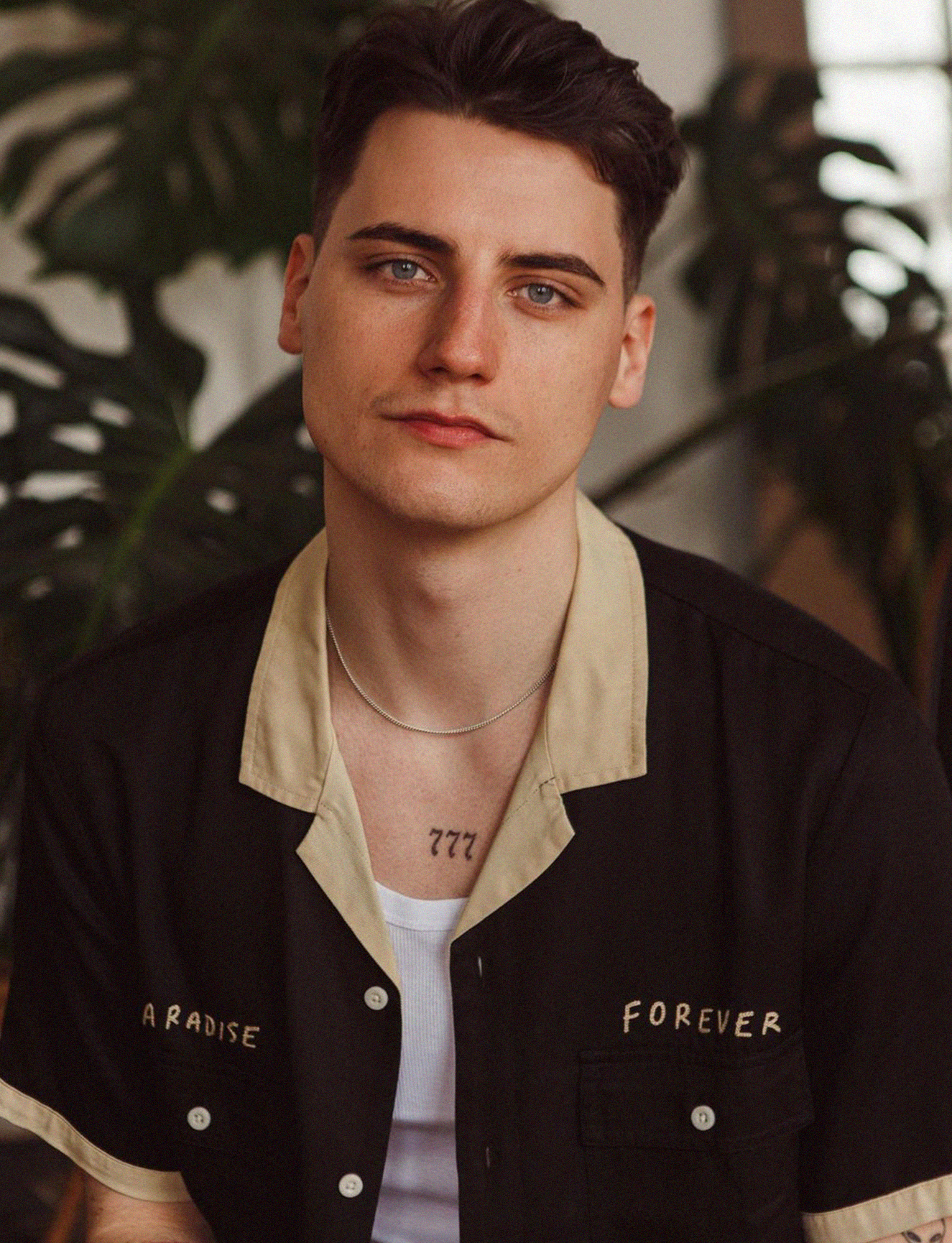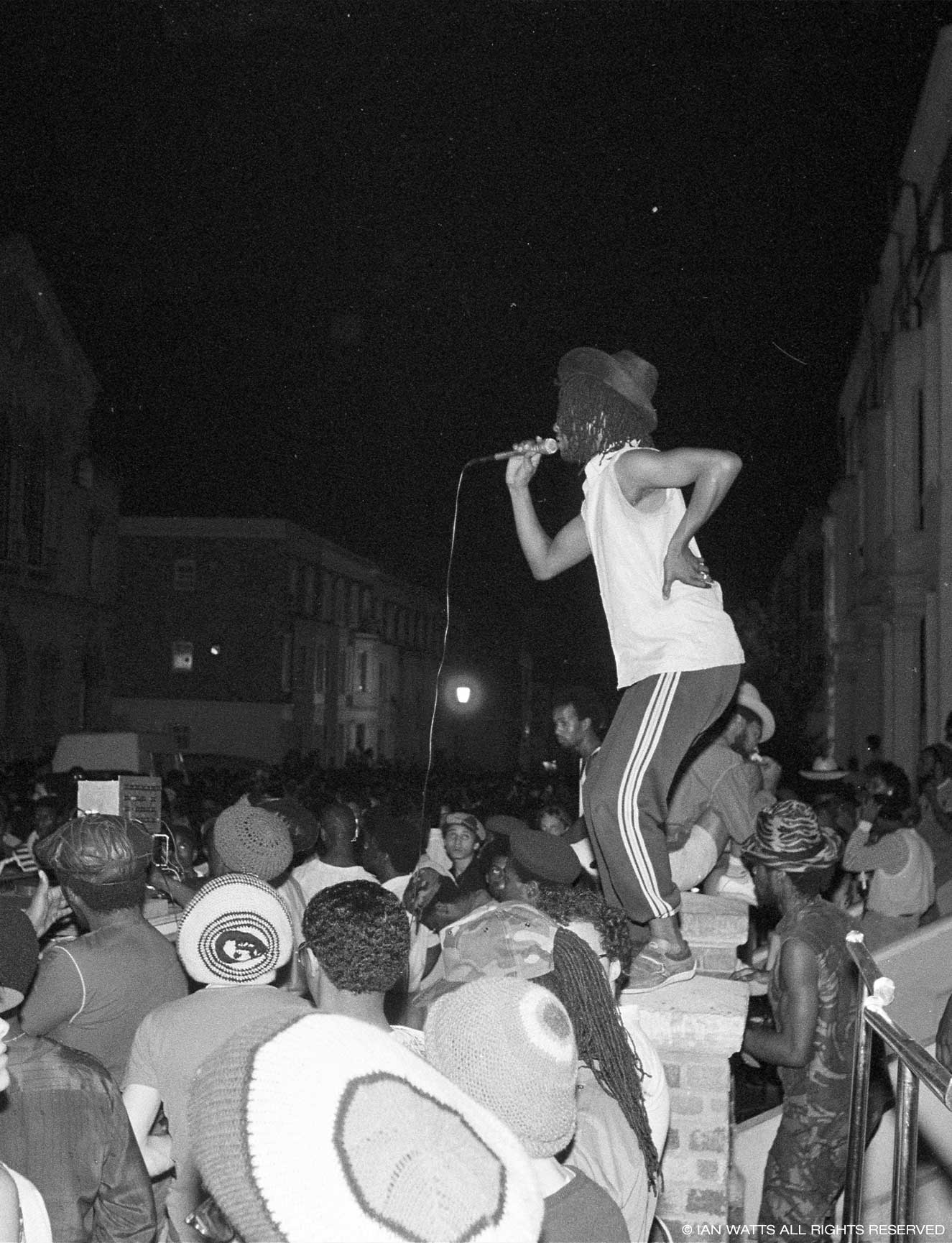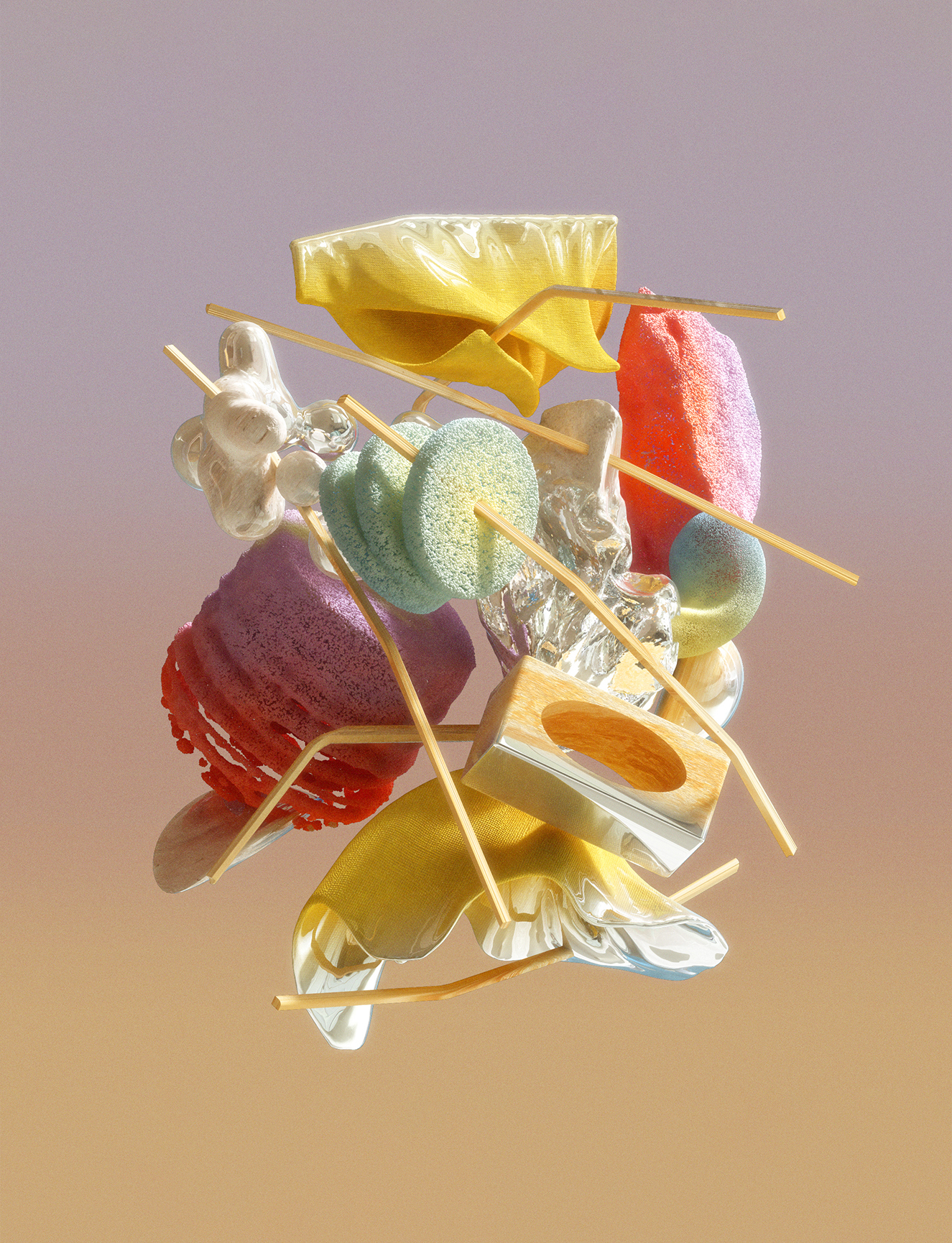You say that you “prioritise energy and personality over perfection” in your work and I’m really interested in this idea of things not having to be ‘perfect’. Can you speak a little on the value of imperfection in creative work?
I personally feel like if you strive for perfection you’ll never achieve it, and that’s a beautiful thing to me. Embracing imperfection doesn’t mean to overlook quality; it means allowing room for spontaneity and uniqueness. When I create, I’m not seeking an unattainable standard of flawlessness. Instead, I aim to craft pieces that resonate and connect with people on a deeper level.
Did you grow up wanting to be an illustrator? And when did you realise you did if not?
Growing up all I ever did was draw, yet it never occurred to me that it could be a viable career choice. It wasn’t until I entered further education that I finally recognised the potential of drawing. Taking a hiatus after university allowed me to explore my options but, as always, my creativity was persistent and I realised that nothing suits me quite like this. I’ve been freelancing for a few years now and honestly I love it! I feel like exploring this career path has fulfilled my inner child, which is a great feeling.
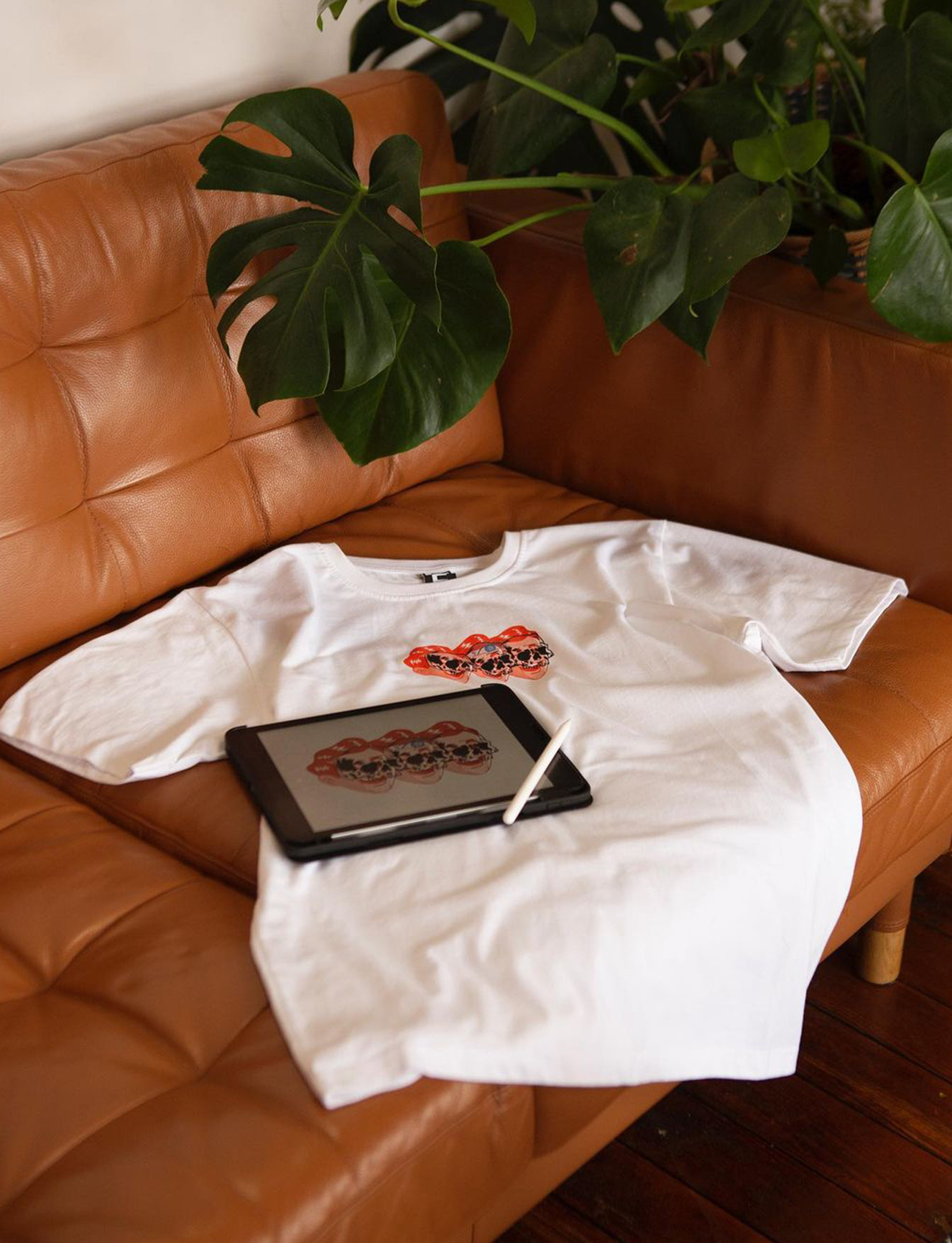
If you strive for perfection you’ll never achieve it
Are you possessive of your ideas?
Not at all. In an era of over-consumption, it’s important to acknowledge that when you share your ideas with the public, others will inevitably expand upon and refine them. If anything, I view this as a massive compliment. If my art serves as a catalyst for someone’s inspiration, I consider it a positive sign that I’m doing something right. I encourage everyone to create as much as possible, under any capacity. I often ask myself, “How unique really is my idea?” I feel that every idea and concept is a product of what you have seen and experienced already, whether the influence is intentional or subconscious.
What are some of your fears about where you are at right now?
I find the unpredictable trajectory of social media can be pretty intimidating. These days it’s really important to use social media, given that a significant number of creatives, myself included, find clients this way. We’re trying to figure out an algorithm that is ever-changing, a challenge that can often feel like a constant struggle. For example, if one of my posts doesn’t achieve the same level of engagement as my previous ones, I’m mindful of the potential repercussions this may have on the visibility of my portfolio. This could then affect how swiftly potential clients come across my work. It’s important to remember that social media isn’t about seeking popularity; it’s about ensuring your work gets the recognition it deserves.
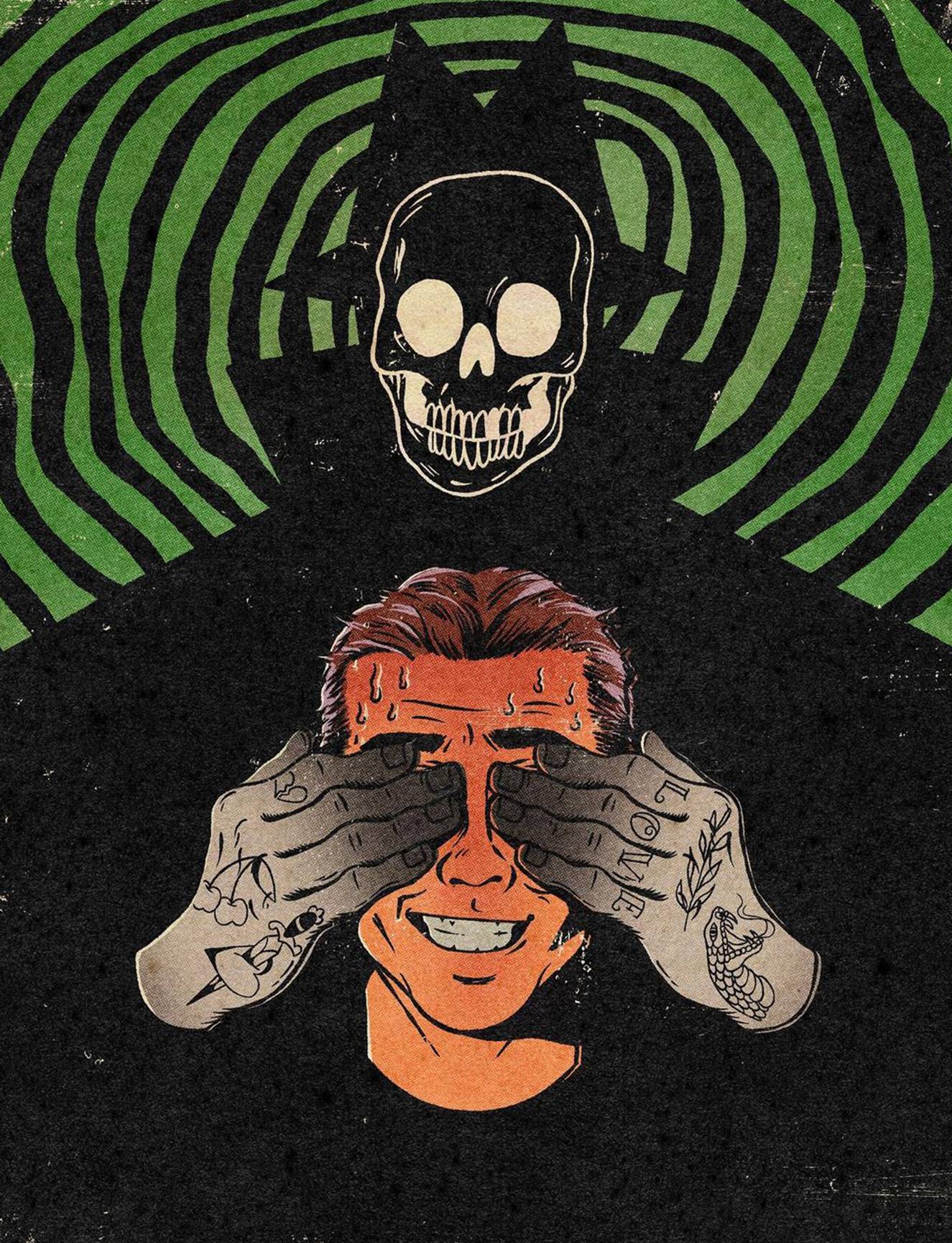
How do you know when something you’re working on is finished?
I used to fall into the pattern of obsessively refining a project and continuing working on it long after others would consider it finished. However, once I started putting a piece of myself into each design, I found I was much better able to recognise when a piece had reached completion. Now I typically feel physically lighter, as if I’ve just had a really long conversation with a friend. Oftentimes, when I think of an idea, it’ll be like an itch I can’t reach until I’ve got it onto paper, or screen. Once the itch goes, that’s when I know I’m done.
I used to obsessively refine a project
You say a lot of your work is about “creating an identity for yourself”. What’s the relationship between your creative output and your identity, both as an artist and beyond?
We live in a generation of over-consumption and over-saturation. I mean this in the sense that across all platforms, ideas and concepts have likely been iterated and reworked countless times, sometimes making it challenging to know who’s work you’re looking at. This is why I’m driven to establish a distinct identity for myself. I aim for people to look at my work and instantly recognise it as mine, irrespective of the theme or message. I can only speak personally on this, but this is important to me because I perceive my art and creativity to be integral parts of my identity. Allowing my voice to resonate through my work allows me to feel more connected to what I have made. When you’re connected to your craft, you’ll produce great results.
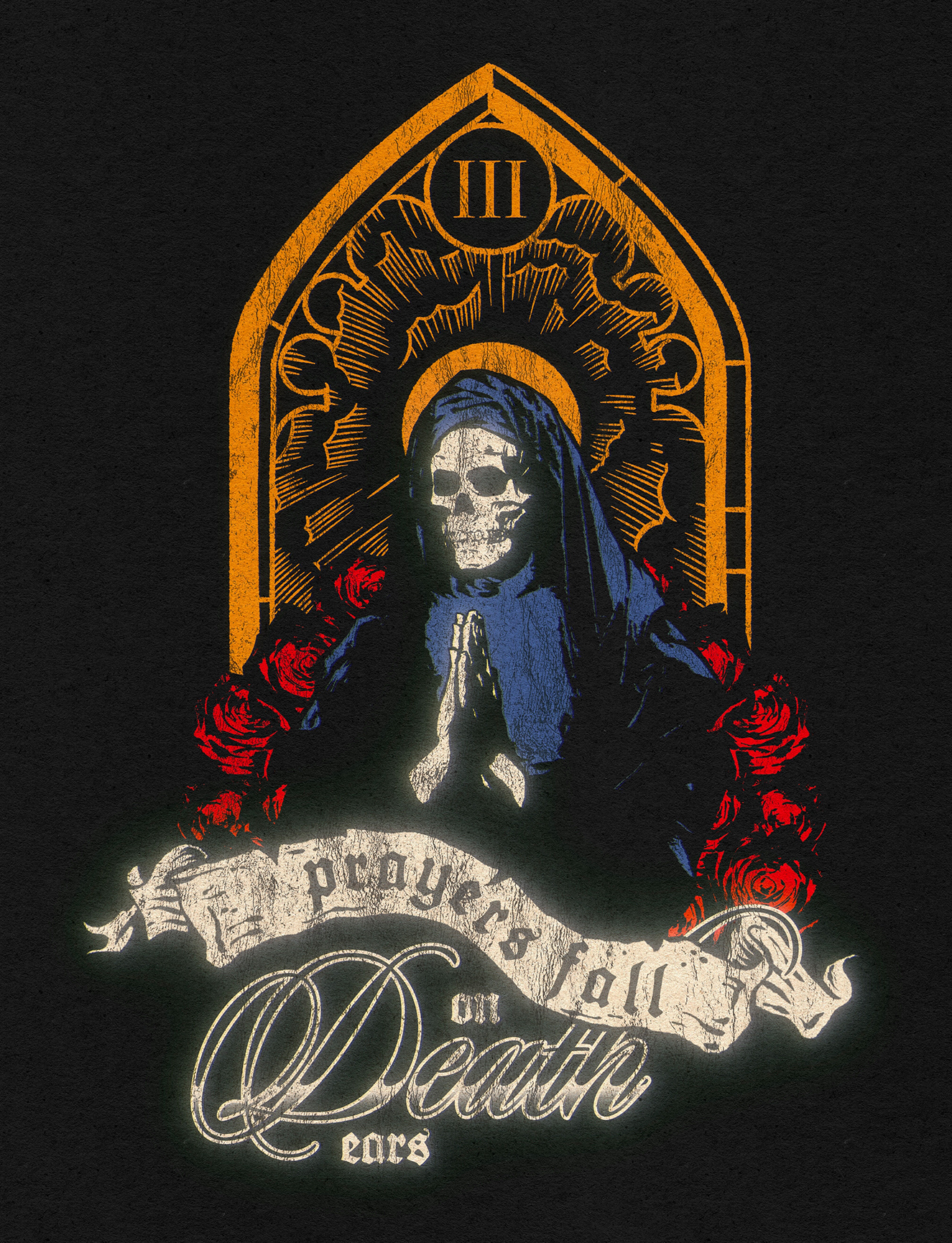
The climate crisis can feel totally beyond the scope of individual action, but why do you think it’s important for creatives to engage with it?
I think that every individual bears a responsibility to contribute towards combating the climate crisis, irrespective of the scale of their actions. Change, regardless of its magnitude, holds significance, as it all adds up. Our capacity as creatives to reach larger audiences gives us the opportunity to communicate the message far and wide across multiple platforms, which is essential. Also, the message can resonate with more people if it is communicated in a specific way, whether that’s through an art piece, a song, a short film or a poem. It’s a cause that affects every single one of us.
Read More: Troy Browne Doesn’t Believe In Perfection



